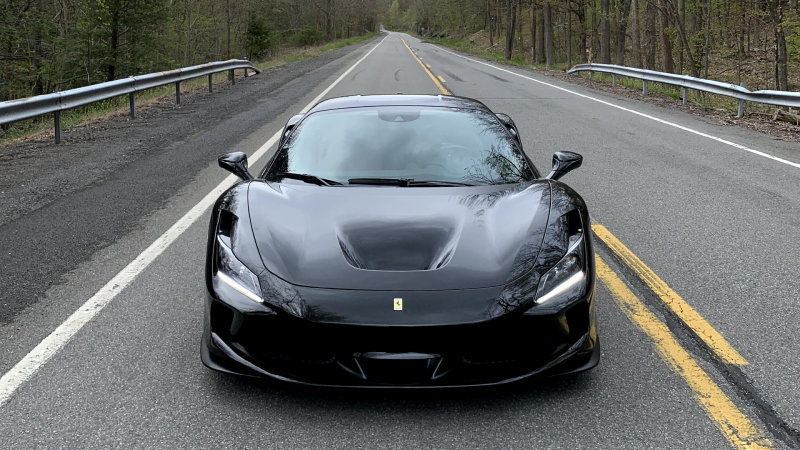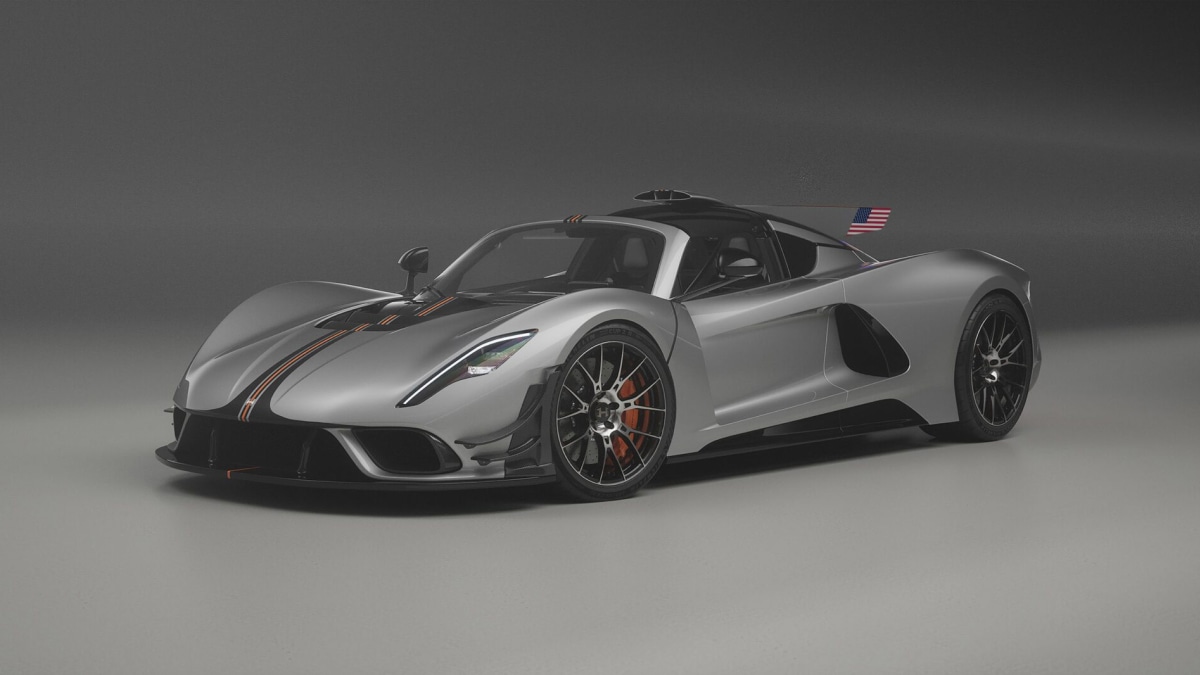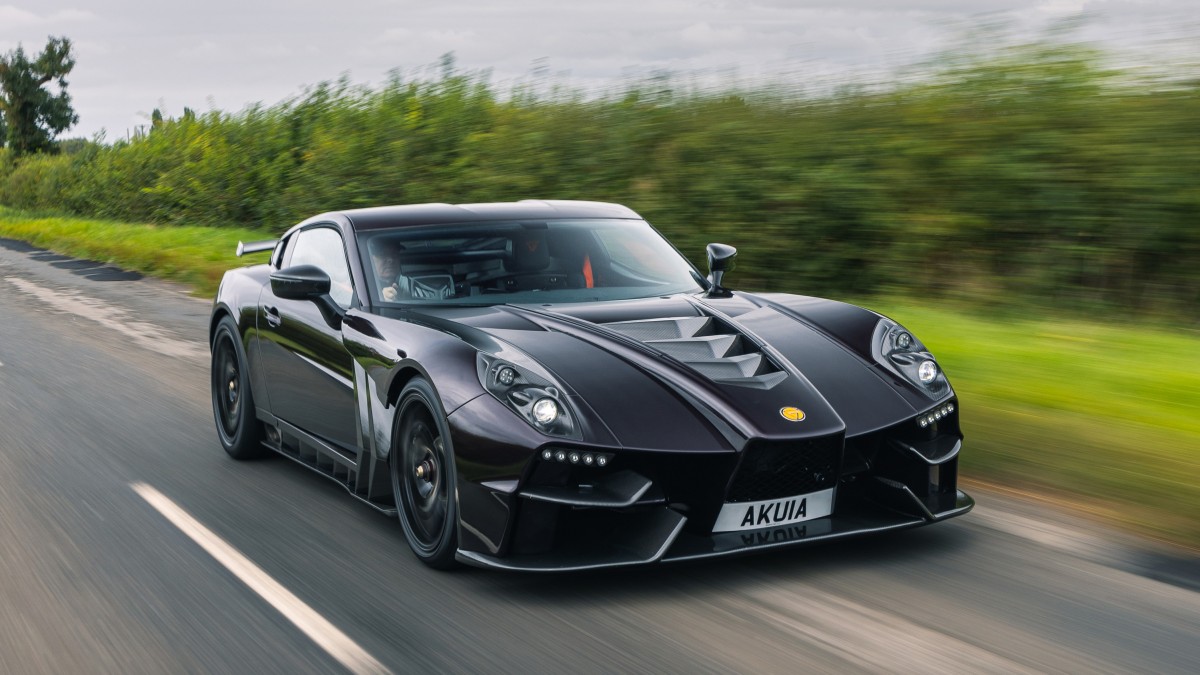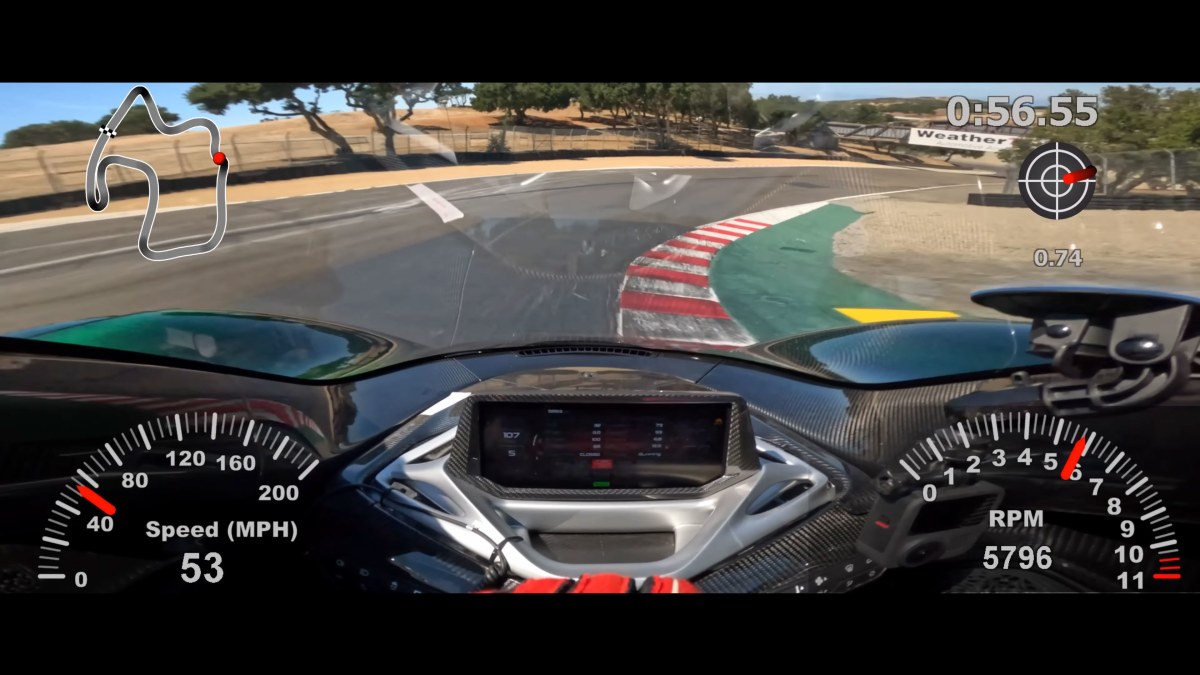There is a Ferrari F8 Tributo sitting in my driveway, casting the unmistakable silhouette of a mid-engine supercar. There’s no mistaking the lightness of a hood, nor the fecund swell of the aft. This is no ordinary car.
Not to frame everything around this super-weird era, but things are super weird, right? Irony doesn’t hold up in a world where even a basic connection makes you want to break down and cry.
So what do you hope when you drive a new Ferrari? The answer is joy. Unadulterated, unmitigated, unjaded joy. And if a brand-new Ferrari can’t bring it, I’m pretty sure I’m a zombie inside.
The F8 has a twin-turbocharged V8 making 710 hp and 569 pound-feet of torque, the same powerplant found in the 488 Pista. It replaces the 488GTB in Ferrari’s line of “regular” mid-engine V8s. Price? It starts at $270,530, and as tested comes in at $360,796.
This is hardly my first Ferrari foray, and the mid-engine, V8 configuration is the formula that most tickles my fancy. Keep your Superfasts and Romas and Californias: I’ll have the nimblest of Prancing Horses, thanks.
But a worry nips at me. When the 458 line sunsetted out of showrooms and into the garages of collectors, so too did the halcyon days of the naturally-aspirated V8. The 488 was quicker than the 458, but it was not necessarily better. A measure of that Ferrari joy was diluted when it lost its natural-breathing soundtrack.
Another generation along, can the Tributo bring it back?
My first experience in a mid-engine Ferrari was at the wheel of an F430, experienced at Lime Rock racetrack and the local roads in Connecticut. It was me and another wet-behind-the-ears journalist, and when the 4.3-liter V8 opened up behind our heads, all previous personal expectations about sports cars shattered. I simply didn’t know a car could move along a two-lane road with such motivation and élan. That it did so making that sound from back there? Even better.
We switched seats, and my colleague wound up getting nailed by a local cop as we neared the gates of Lime Rock. I sincerely suggested that he frame the ticket. It’s not every day you get pulled over in a Ferrari.
Later I drove the lighter, livelier version of the F430 on the racetrack — the 430 Scuderia. It set a high mark for me when it comes to track-focused road cars. It went wherever you looked without hesitation, a car linked to your optic nerves.
Then, the 458 Italia. I tested an early model in Italy, driving it out of factory gates in Maranello. I posited afterward that few mortal, regular drivers could handle a car that transported you so far down the road with a sudden shove of the accelerator. Too fast, maybe. A few years after that, I raced in the Ferrari Challenge series at Watkins Glen in a 458 Challenge car. Add in racing slicks and an even-further-stiffened body and you find yourself testing the limits of both traction and your own bravery.
And finally came the 488. The first forced-induction version of the Platonian ideal. It was faster, colleagues insisted, and they were right. But the noise, no matter how hard the engineers tried (and they did, they told me in that deep and non-ironic Italian sincerity), just wasn’t the same. It was a bridge to a whole new world; one I wasn’t sure I wanted to cross.
And so, today, finally, the F8 Tributo.
Just sitting inside, you are surprised by the overt simplicity, the low dash, the 1970s-throwback starkness. We’ve become accustomed to the rampant proliferation of digital screens, bulky central tunnels, and cockpit-style seating. By contrast, the Tributo’s sport buckets are low and flat, the area separating driver and passenger uncluttered. It’s an open and even friendly space.
This level of simplicity began in the 458 and continued into the 488, but in the F8, it feels like the interior designers have decluttered even more. All the frippery is gone and it’s just dead simple and gorgeous — a clarion declaration that focus should be paid to what’s happening outside of the vehicle.
Out onto the network of two-lane byroads that thread throughout the Pocono Mountains of northeast Pennsylvania, the Tributo is pliant enough to skim over pitted asphalt and even — at low speeds, with nose raised — gravel roads. The “bumpy road” suspension setting is brilliant when you’re feeling speedy on less than pristine tarmac.
As befitting its layout, there’s no Normal mode: just Wet and Sport and further ludicrous notches up the Manettino dial. Still, even in Sport, the F8 is surprisingly relaxed when you’re not trying to trammel the pavement. A thumb and two fingers on both hands is enough pressure on the new and smaller steering wheel to guide the F8 along at both around-town and extra-legal speeds.
There’s no induced heaviness, and the twitchiness of the 458 is gone. Turn the wheel too much in the Italia and the Ferrari would take a hard set and jar you in that direction, like an irrepressible hound after a rabbit. By contrast, the F8’s steering is a fine-tuned thing — perfection.
The bated breath of the 488 is gone, too. Engineers of the era worked hard to mimic the gradual build of a naturally aspirated engine, but there was still a moment when the GTB would experience a wallop of power — often more than you expected, and perhaps more than needed, and you’d have to catch up to the steering.
The intervening years have allowed the minds at Maranello to better integrate the turbo and the suspension. Everyone is playing together beautifully, a reintegrated orchestra. The sound isn’t the thing of old, but it’s a new and vibrant thing, and after about an hour’s drive, I let my previous reservations go. This thing is a mid-engine V8 Ferrari, and it is a joy.
And with that began days and days of driving and giving rides. There’s a bridge out of town that’s been shut down, leaving a long section of road without traffic. That’s the place for launch control and hard braking. The 2.9-second rush to 62 mph is a thing to be experienced, and any long and sustained sprint easily allows you to believe the claimed 211-mph top speed.
Straight-line speed isn’t the F8’s reason for being, though. Rather, it’s the road that coils up a mountain ridge, with decreasing-radius turns and followed by a set of downhill sweepers. There is nothing artificial feeling about this car. There are lines of code running in the background, handling wheel spin and yaw control, of course, but they never pop up their heads from the digital ground to bother you.
There are even days of rain that force me to turn the dial to Wet. I take the Ferrari out anyway, just for the feel of the steering wheel in my hand.
And, lastly, even when it’s just parked in the driveway, I sit on my front steps with a coffee, enjoying the way the light plays on the exterior bodywork. The design is simplified, undiluted.
In all of the heaviness of the world and its recent enforced stillness, the F8 allowed me to reconnect. To be part of the outside world again. That’s as much as you could ask of any car.
Related Video:




